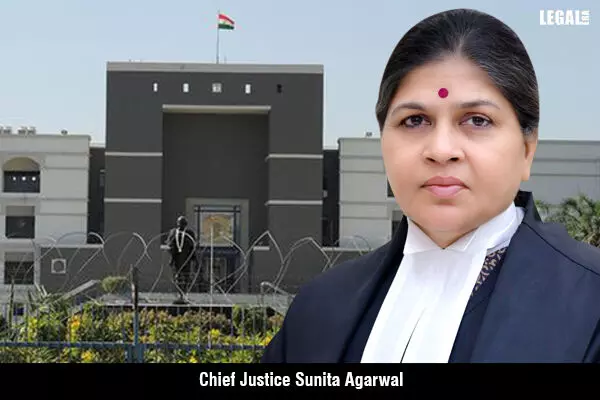- Home
- News
- Articles+
- Aerospace
- Artificial Intelligence
- Agriculture
- Alternate Dispute Resolution
- Arbitration & Mediation
- Banking and Finance
- Bankruptcy
- Book Review
- Bribery & Corruption
- Commercial Litigation
- Competition Law
- Conference Reports
- Consumer Products
- Contract
- Corporate Governance
- Corporate Law
- Covid-19
- Cryptocurrency
- Cybersecurity
- Data Protection
- Defence
- Digital Economy
- E-commerce
- Employment Law
- Energy and Natural Resources
- Entertainment and Sports Law
- Environmental Law
- Environmental, Social, and Governance
- Foreign Direct Investment
- Food and Beverage
- Gaming
- Health Care
- IBC Diaries
- In Focus
- Inclusion & Diversity
- Insurance Law
- Intellectual Property
- International Law
- IP & Tech Era
- Know the Law
- Labour Laws
- Law & Policy and Regulation
- Litigation
- Litigation Funding
- Manufacturing
- Mergers & Acquisitions
- NFTs
- Privacy
- Private Equity
- Project Finance
- Real Estate
- Risk and Compliance
- Student Corner
- Take On Board
- Tax
- Technology Media and Telecom
- Tributes
- Viewpoint
- Zoom In
- Law Firms
- In-House
- Rankings
- E-Magazine
- Legal Era TV
- Events
- Middle East
- Africa
- News
- Articles
- Aerospace
- Artificial Intelligence
- Agriculture
- Alternate Dispute Resolution
- Arbitration & Mediation
- Banking and Finance
- Bankruptcy
- Book Review
- Bribery & Corruption
- Commercial Litigation
- Competition Law
- Conference Reports
- Consumer Products
- Contract
- Corporate Governance
- Corporate Law
- Covid-19
- Cryptocurrency
- Cybersecurity
- Data Protection
- Defence
- Digital Economy
- E-commerce
- Employment Law
- Energy and Natural Resources
- Entertainment and Sports Law
- Environmental Law
- Environmental, Social, and Governance
- Foreign Direct Investment
- Food and Beverage
- Gaming
- Health Care
- IBC Diaries
- In Focus
- Inclusion & Diversity
- Insurance Law
- Intellectual Property
- International Law
- IP & Tech Era
- Know the Law
- Labour Laws
- Law & Policy and Regulation
- Litigation
- Litigation Funding
- Manufacturing
- Mergers & Acquisitions
- NFTs
- Privacy
- Private Equity
- Project Finance
- Real Estate
- Risk and Compliance
- Student Corner
- Take On Board
- Tax
- Technology Media and Telecom
- Tributes
- Viewpoint
- Zoom In
- Law Firms
- In-House
- Rankings
- E-Magazine
- Legal Era TV
- Events
- Middle East
- Africa
Gujarat High Court: No Substitute Co-Arbitrator Can Be Appointed When Arbitrator's Mandate Ends By Law

Gujarat High Court: No Substitute Co-Arbitrator Can Be Appointed When Arbitrator's Mandate Ends By Law
The Gujarat High Court has determined that under Section 15(2) of the Arbitration and Conciliation Act, 1996 (A&C Act), a replacement co-arbitrator cannot be designated when an arbitrator's authority is terminated by legal means.
Chief Justice Sunita Agarwal, presiding over the case, stated, "As discussed above, this is not a case of withdrawal from the office by the arbitrator, but rather a termination of the arbitrator's mandate by operation of law. Consequently, the petitioner's counsel's arguments for the interpretation of Section 15(2) of the Arbitration Act, 1996, to appoint a substitute co-arbitrator by invoking Clause 11.12 of the Agreement, must be rejected."
In a case where a Limited Liability Partnership (LLP) sought the appointment of a co-arbitrator for a private company in an ongoing arbitration dispute, the Gujarat High Court ruled on the applicability of Section 15(2) of the Arbitration and Conciliation Act, 1996 (A&C Act).
The dispute arose from a share purchase and subscription agreement (SPA) and a shareholder agreement (SHA) between the petitioner LLP and the respondent company. Upon failing to resolve the dispute through mediation, the petitioner-initiated arbitration proceedings under Section 11 of the A&C Act, resulting in the appointment of a sole arbitrator by the High Court.
Subsequently, the petitioner sought interim relief under Section 17 of the A&C Act, which was partly granted by the Arbitral Tribunal. However, challenges were raised under Section 34 of the A&C Act before the Commercial Court.
In response to the petitioner's plea for the appointment of a co-arbitrator, the High Court clarified that Section 15(2) did not apply as the mandate of the arbitrator had expired and no substitute co-arbitrator could be appointed. Despite options to extend the Arbitral Tribunal's mandate under Section 29A, the petitioner insisted on a co-arbitrator's appointment, leading to the dismissal of the petition.
The Court emphasized that since no party invoked Section 29A to extend the arbitration proceedings, the case did not meet the criteria for invoking Section 15(2) for a substitute arbitrator's appointment.
As a result, the High Court dismissed the petition, basing its decision on the Order dated November 6, 2023, which confirmed the arbitrator's withdrawal under Section 14(1)(b) of the A&C Act, 1996.



